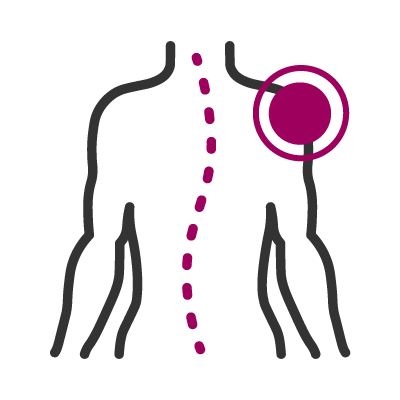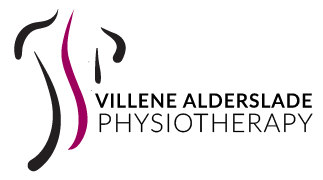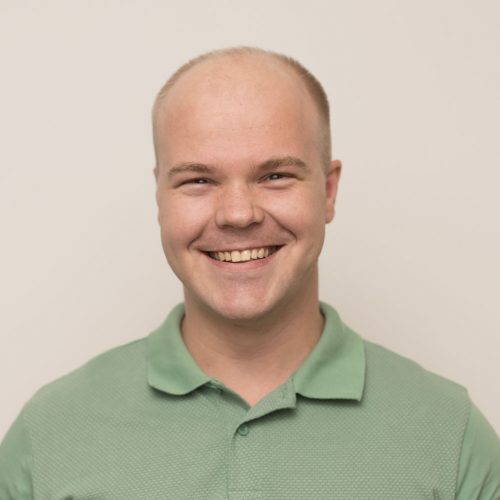OUR SERVICES.
WHAT WE DO
OUR SERVICES
Our qualified physiotherapists provide the following services:

Evaluation
Skilled evaluation of a patient’s injuries and needs.

Personalised Programs
Individually designed exercise programs.

Education
Patient education

Electrotherapy
Specialised Electrotherapy Equipment, Radial Shock Wave Therapy

Hands-on Therapy
Such as: Mobilisation, Manipulation, Massage, Acupressure and Dry needling.
FREQUENTLY ASKED QUESTIONS
Ask the experts.
WHAT IS PHYSIOTHERAPY?
A physiotherapist provides service to an individual by assessing, treating and preventing movement disorders, restoring normal function or minimising dysfunction.
It enables children and adults to achieve the highest possible level of independence in their lives – preventing recurrent injuries and disability in the workplace, home or during recreational activities. This leads to the promotion of community health for all ages.
WHAT IS THE DIFFERENCE BETWEEN PHYSIOTHERAPY, BIOKINETICS, CHIROPRACTIC AND OSTEOPATHY?
A PHYSIOTHERAPIST is concerned with assessing, treating and the preventing human movement disorders, restoring normal function and minimising dysfunction and pain. They are also concerned with rehabilitation of patients, but it involves far more “hands-on” work. Once a patient has achieved the initial phase of retaliation, they naturally move to the biokineticist.
A BIOKINETICIST is a specialised exercise therapist who works alongside allied health and medical practitioners. They are concerned with the rehabilitation of injury or diseases and uses exercise to balance muscle strengths, weaknesses, lengths and tightness around joints.
OSTEAPATHY is a complementary therapy. It is used alongside conventional treatment to improve health. Osteopathy is a drug-free, non-invasive manual therapy that aims to improve health across all body systems by manipulating and strengthening the musculoskeletal framework.
CHIROPRACTIC is a form of alternative medicine mostly concerned with treatment of mechanical disorders of the musculoskeletal system, especially the spine. The main chiropractic treatment technique involves especially spinal manipulation therapy (SMT), manipulations of other joints and soft tissues
WHICH CONDITIONS DO WE COMMONLY TREAT?
- WOMAN’S AND MEN’S HEALTH
- SPORT INJURIES (Crossfit + Gym related, Golf, Running, School Sport, Cycling and Triathlon, Weight Training, Growth Plate and Overuse injuries in young patients, Pilates and Yoga related biochemical sprains)
- MINOR RESPIRATORY AND SINUS CONDITIONS
- SOFT TISSUE INJURIES (Chronic Tendinopathy, Muscle Tears, Fibromialgia, Ligament injuries and long-term management)
- BACK AND NECK DISORDERS (Headaches, Neck and Back pain, Special Interest in Scoliosis)
- TEMPORO-MANDIBULAR JOINT DISORDER
- POST-SURGICAL REHABILITATION (Lumbar Fusions, Lumbar related surgeries, Cervical related surgeries, Joint replacements, Joint arthroscopies)
- WORK RELATED ERGONOMICS (Postural Dysfunction and Mechanical Headaches)
- GERIATRIC CONDITIONS
- BALANCE DISORDERS AND VESTIBULAR RETRAINING
WILL I FEEL BETTER AFTER MY FIRST SESSION?
Sometimes you might expect some level of discomfort directly after your physiotherapy session, but your physiotherapist will inform you if soreness after your session will be expected
WILL PHYSIOTHERAPY HURT?
CAN YOU FIX MY PROBLEM?
Ultimately, a physiotherapy treatment session can offer a level of immediate relief and recovery. However, fixing your problem involves you changing some behaviours and activities in your personal life to eliminate the source of the issue, re-align your body and to feel better and stronger in the end. As therapists, we will provide you with the tools, information and bio-feedback to do this.
Sometimes there’s a quick fix, but (as with most things in life) you also have to put in some work to obtain maximal results from your physiotherapy sessions.
WILL I NEED MORE THAN ONE TREATMENT SESSION?
Your progress will often depend on completing exercises and stretches with increasing complexity and difficulty over time. We assess whether you are completing these adequately and “push” for a speedy recovery within safe parameters.
We may also have to update your other medical providers/contacts periodically with technical data related to your injury progress.
Therefore, if your therapist prescribes exercises/stretches remember to do this will ensure quick recovery (and probably fewer appointments with your therapist!)
OUR SERVICES
Ask the experts.

Evaluation
Skilled evaluation of a patient’s injuries and needs.

Personalised Programs
Individually designed exercise programs.

Education
Patient education

Electrotherapy
Specialised Electrotherapy Equipment, Radial Shock Wave Therapy

Hands-on Therapy
Such as: Mobilisation, Manipulation, Massage, Acupressure and Dry needling.
FREQUENTLY ASKED QUESTIONS
Ask the experts.
WHAT IS PHYSIOTHERAPY?
A physiotherapist provides service to an individual by assessing, treating and preventing movement disorders, restoring normal function or minimising dysfunction.
It enables children and adults to achieve the highest possible level of independence in their lives – preventing recurrent injuries and disability in the workplace, home or during recreational activities. This leads to the promotion of community health for all ages.
WHAT IS THE DIFFERENCE BETWEEN PHYSIOTHERAPY, BIOKINETICS, CHIROPRACTIC AND OSTEOPATHY?
A PHYSIOTHERAPIST is concerned with assessing, treating and the preventing human movement disorders, restoring normal function and minimising dysfunction and pain. They are also concerned with rehabilitation of patients, but it involves far more “hands-on” work. Once a patient has achieved the initial phase of retaliation, they naturally move to the biokineticist.
A BIOKINETICIST is a specialised exercise therapist who works alongside allied health and medical practitioners. They are concerned with the rehabilitation of injury or diseases and uses exercise to balance muscle strengths, weaknesses, lengths and tightness around joints.
OSTEAPATHY is a complementary therapy. It is used alongside conventional treatment to improve health. Osteopathy is a drug-free, non-invasive manual therapy that aims to improve health across all body systems by manipulating and strengthening the musculoskeletal framework.
CHIROPRACTIC is a form of alternative medicine mostly concerned with treatment of mechanical disorders of the musculoskeletal system, especially the spine. The main chiropractic treatment technique involves especially spinal manipulation therapy (SMT), manipulations of other joints and soft tissues
WHICH CONDITIONS DO WE COMMONLY TREAT?
- SPORT INJURIES (Crossfit + Gym related, Golf, Running, School Sport, Cycling and Triathlon, Weight Training, Growth Plate and Overuse injuries in young patients, Pilates and Yoga related biochemical sprains)
- MINOR RESPIRATORY AND SINUS CONDITIONS
- SOFT TISSUE INJURIES (Chronic Tendinopathy, Muscle Tears, Fibromialgia, Ligament injuries and long-term management)
- BACK AND NECK DISORDERS (Headaches, Neck and Back pain, Special Interest in Scoliosis)
- TEMPORO-MANDIBULAR JOINT DISORDER
- POST-SURGICAL REHABILITATION (Lumbar Fusions, Lumbar related surgeries, Cervical related surgeries, Joint replacements, Joint arthroscopies)
- WORK RELATED ERGONOMICS (Postural Dysfunction and Mechanical Headaches)
- GERIATRIC CONDITIONS
- BALANCE DISORDERS AND VESTIBULAR RETRAINING
WILL I FEEL BETTER AFTER MY FIRST SESSION?
WILL PHYSIOTHERAPY HURT?
CAN YOU FIX MY PROBLEM?
Ultimately, a physiotherapy treatment session can offer a level of immediate relief and recovery. However, fixing your problem involves you changing some behaviours and activities in your personal life to eliminate the source of the issue, re-align your body and to feel better and stronger in the end. As therapists, we will provide you with the tools, information and bio-feedback to do this.
Sometimes there’s a quick fix, but (as with most things in life) you also have to put in some work to obtain maximal results from your physiotherapy sessions.
WILL I NEED MORE THAN ONE TREATMENT SESSION?
Your progress will often depend on completing exercises and stretches with increasing complexity and difficulty over time. We assess whether you are completing these adequately and “push” for a speedy recovery within safe parameters.
We may also have to update your other medical providers/contacts periodically with technical data related to your injury progress.
Therefore, if your therapist prescribes exercises/stretches remember to do this will ensure quick recovery (and probably fewer appointments with your therapist!)
OUR BIOKINETICISTS
PAARL
Cecilia Square
Cecilia Street Circle, Green Pastures, Paarl, 7646
OPENING HOURS
Weekdays, 08:15-18:30
VAL DE VIE ESTATE
Polo Village Office Block
Building B3, Ground Floor, Room 301
OPENING HOURS
Weekdays, 08:15-18:30
FRANSCHHOEK
9 Fabriek Street
Fabriek National, Unit C, Franschhoek, 7690
TELEPHONE: 064 751 9958
OPENING HOURS
Weekdays, 09:00-16:30
CONTACT US
Want to book an appointment?
TELEPHONE
0647519958 / 021 001 0372
EMAIL
info@aldersladephysiotherapy.co.za


